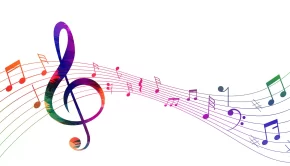Exploring the Future of Music in the Digital Age
Step into the exciting world of music in the digital age, where technology has revolutionized how we enjoy and share our favorite tunes.
With streaming platforms making music more accessible than ever, independent artists finding their place in the industry, social media shaping musical trends, and virtual concerts taking us on immersive journeys – the music landscape has undergone remarkable transformations. Join me as we venture into this exhilarating realm together!
The Evolution of Music Consumption
The digital age has transformed the way we listen to music, and it has also had an impact on other forms of online entertainment, such as online gaming with games like blackjack online and shopping with e-commerce. Just like music streaming services like Spotify and Apple Music have made it incredibly convenient to access a vast catalog of songs, technology has similarly enhanced the world of online gaming.
This means that people can now easily enjoy playing games like blackjack online without any hassle. It’s all about providing unprecedented convenience and giving enthusiasts the chance to explore different genres or find their favorite tunes with minimal effort.
From Vinyl to Streaming
The music industry has undergone significant changes with the shift from vinyl records to digital streaming platforms. Gone are the days of searching through stacks of records or waiting for a specific song on the radio – now we have instant access to millions of tracks from around the world through streaming services.
Platforms like Spotify and Pandora have provided legal and affordable options, leading to a resurgence in physical sales not seen since the early 1970s. The goal was also to combat illegal file sharing by offering a convenient and legitimate service for quick streaming. This approach proved successful, unlike other authorized sites that fell short. It not only created multiple revenue streams for artists but also offered indie musicians an opportunity to reach larger audiences than ever before.
Convenience and Accessibility
Digital streaming has revolutionized how we consume music in recent years, providing convenience and access like never before. With just a few taps on our devices, we can explore a vast array of artists and genres. Algorithms even help us discover new tunes tailored to our individual listening habits.
Subscription services like Spotify and Apple Music have been game-changers, benefiting both listeners who enjoy cost-effective access without the need for physical storage or purchasing individual songs/albums, and musicians who earn royalties from their work. This mutually beneficial relationship is poised to continue transforming the way people experience music in the future.
The Rise of Independent Artists
In the digital era, independent musicians have found freedom from traditional major label limitations and can now connect with a global fan base. Thanks to modern technology like social media and various platforms, they can strategically target specific demographic markets by creating music that resonates with listeners who appreciate particular styles or trends.
This new abundance of creative liberty has welcomed a vast selection of artists, varieties and sounds into our musical culture. Resulting in more opportunities for both creators and fans alike.
Breaking Free from Major Labels
In today’s digital era, independent artists have greater access to the necessary tools for releasing their music without relying on major labels. This newfound independence empowers them with more control over various aspects of their work, including creative processes and ownership rights.
Furthermore, it allows for the cultivation of closer relationships with fans from niche markets. Companies like BMG Rights Management and Kobalt are introducing innovative business models that enable musicians to directly distribute recordings, eliminating the need for traditional record corporations or major label representatives.
Consequently, these creatives enjoy complete autonomy in producing and sharing content. Considering this trend, it is crucial for record labels to adapt if they wish to remain competitive within the industry.
Global Audience and Niche Markets
In the digital era, independent musicians have leveraged global platforms to share their music and connect with an international fanbase. The traditional costs associated with physical production, packaging, and shipping are no longer obstacles for them.
As a result, they can expand their reach, gain more visibility, and instantly connect with fans worldwide. They can also easily collaborate with other artists. This has opened up new opportunities for success within the industry, even without support from major labels.
Streaming services like Spotify and Apple Music offer features that support independent artists by recommending songs based on users’ preferences and listening history. This greatly enhances discoverability, allowing solo artists to tap into specific markets that cater to people’s interests. Consequently, their potential for success increases, fulfilling their ambitions.
The Impact of Social Media on the Music Industry
The rise of social media has significantly impacted the music industry, revolutionizing how artists attain success. These platforms have become vital in amplifying trends, fostering connections with influencers for promotional purposes, and enabling direct communication between performers and their audiences.
As a result, followers now have a greater sense of loyalty and can form deeper connections with the artists who create the music that resonates with them.
Viral Hits and Influencer Collaborations
The impact of social media networks on the music industry cannot be underestimated. It has revolutionized how independent artists promote their music, allowing them to connect with a larger audience and capitalize on emerging trends.
Collaborations with influencers have become invaluable for generating interest in specific songs, helping users discover new sounds that they may not have come across otherwise, especially as streaming activity increases. The potential for overnight worldwide recognition through viral success on platforms like TikTok is unprecedented for artists.
Direct Fan Interaction
Social media platforms have completely transformed how musicians interact with their fans. With features like commenting, direct messaging, and live streaming, artists now have a unique opportunity to connect with their followers on a personal level and promote their music.
This connection has fostered a tight-knit community of dedicated supporters who are more likely to show loyalty amidst the intense competition in the industry. Establishing this close bond is vital for any artist’s ongoing success in the future.
The Future of Music Monetization
In the era of digital advancements, musicians have unprecedented opportunities to monetize their art and generate revenue. Subscription services and microtransactions are just a few avenues that offer new possibilities in this sector.
Blockchain technology and non-fungible tokens (NFTs) hold immense potential to ensure fair compensation for artists’ work. With a wide array of options now at our disposal, it is crucial that we leverage these resources effectively so that musicians can fully reap the benefits of their creative output.
Subscription Services and Microtransactions
Music streaming platforms like Spotify and Apple Music have revolutionized the way artists earn royalties from their music. These services provide artists with a vast audience and the potential for higher income, especially for popular tracks or albums. Fans now have the option to directly support their favorite creators by paying small amounts, creating a more intimate form of monetization that has been made possible by advancements in technology.
The emergence of new income streams provides musicians with unprecedented opportunities. In fact, there may soon be breakthroughs that offer talented individuals additional avenues to sustain their livelihood through music.
Non-Fungible Tokens (NFTs) and Blockchain
Blockchain technology and Non-Fungible Tokens (NFTs) are providing musicians with innovative ways to generate income from their music. By leveraging the blockchain, these digital assets cannot be replicated or duplicated, representing unique works of art or songs. This grants artists ownership rights over exclusive digital objects that were previously non-existent, enabling them to explore more creative avenues for monetizing their artistic talents.
The combination of blockchain technology and NFTs presents vast opportunities for revolutionizing the music industry. As creators continue to embrace these modern tools, innovative ways to monetize audio recordings will emerge. This opens up new avenues for performers to reap financial benefits from their work.
































